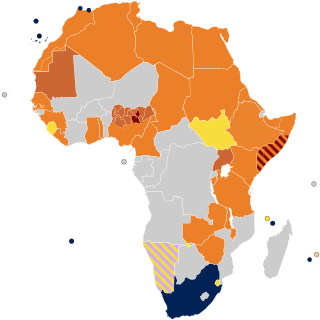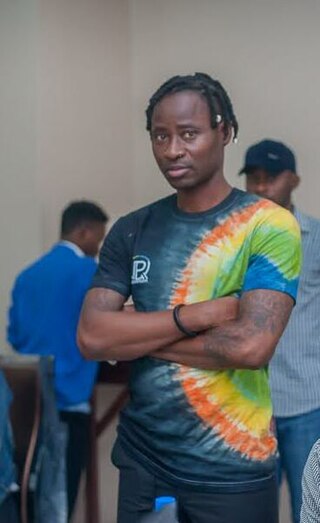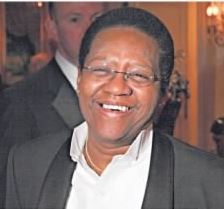Related Research Articles

The Home Office (HO), also known as the Home Department, is a ministerial department of the Government of the United Kingdom. It is responsible for immigration, security, and law and order. As such, it is responsible for policing in England and Wales, fire and rescue services in England, Border Force, visas and immigration, and the Security Service (MI5). It is also in charge of government policy on security-related issues such as drugs, counterterrorism, and immigration. It was formerly responsible for His Majesty's Prison Service and the National Probation Service, but these have been transferred to the Ministry of Justice.

Urvashi Vaid was an Indian-born American LGBT rights activist, lawyer, and writer. An expert in gender and sexuality law, she was a consultant in attaining specific goals of social justice. She held a series of roles at the National LGBTQ Task Force, serving as executive director from 1989-1992 — the first woman of color to lead a national gay-and-lesbian organization. She is the author of Virtual Equality: The Mainstreaming of Gay and Lesbian Liberation (1995) and Irresistible Revolution: Confronting Race, Class and the Assumptions of LGBT Politics (2012).

The rights of lesbian, gay, bisexual, transgender, and queer (LGBTQ) people in the United Kingdom of Great Britain and Northern Ireland have developed significantly over time. Today, lesbian, gay and bisexual rights are considered to be advanced by international standards.

Lesbian, gay, bisexual, and transgender (LGBT) people in Cameroon face severe challenges not experienced by non-LGBTQ residents. Both male and female same-sex sexual activity is illegal in Cameroon and LGBT people face prevalent discrimination among the broader population. As of 2020, Cameroon "currently prosecutes consensual same sex conduct more aggressively than almost any country in the world".

Bisexual erasure, also called bisexual invisibility, is the tendency to ignore, remove, falsify, or re-explain evidence of bisexuality in history, academia, the news media, and other primary sources.

Lesbian, gay, bisexual, and transgender (LGBT) people in Azerbaijan face significant challenges not experienced by non-LGBTQ residents. Same-sex sexual activity has been legal in Azerbaijan since 1 September 2000. Nonetheless, discrimination on the basis of sexual orientation and gender identity are not banned in the country and same-sex marriage is not recognized.

A gay icon is a public figure who is regarded as a cultural icon by members of the LGBT community. Such figures usually have a devoted LGBT fanbase and act as allies to the LGBT community, often through their work, or they have been "openly appreciative of their gay fanbase". Many gay icons also have a camp aesthetic style, which is part of their appeal to LGBT individuals.

Lesbian, gay, bisexual, transgender, and queer (LGBTQ) people in Botswana face legal issues not experienced by non-LGBTQ citizens. Both female and male same-sex sexual acts have been legal in Botswana since 11 June 2019 after a unanimous ruling by the High Court of Botswana. Despite an appeal by the government, the ruling was upheld by the Botswana Court of Appeal on 29 November 2021.

Lesbian, gay, bisexual, and transgender (LGBT) rights in Africa are generally poor in comparison to the Americas, Western Europe, and Oceania.

Bisi Alimi is a British-Nigerian gay rights activist, public speaker, blog writer and HIV/LGBT advocate who gained international attention when he became the first Nigerian to come out on television.
Corrective rape, also called curative rape or homophobic rape, is a hate crime in which somebody is raped because of their perceived sexual orientation. The common intended consequence of the rape, as claimed by the perpetrator, is to turn the person heterosexual.

Kasha Jacqueline Nabagesera is a Ugandan LGBT rights activist and the founder and executive director of the LGBT rights organization Freedom & Roam Uganda (FARUG). She received the Martin Ennals Award for Human Rights Defenders in 2011 and the Right Livelihood Award in 2015.
LGBT migration is the movement of lesbian, gay, bisexual and transgender (LGBT) people around the world or within one country. LGBT individuals choose to migrate so as to escape discrimination, bad treatment and negative attitudes due to their sexuality, including homophobia and transphobia. These people are inclined to be marginalized and face socio-economic challenges in their home countries. Globally and domestically, many LGBT people attempt to leave discriminatory regions in search of more tolerant ones.
John "Longjones" Abdallah Wambere is a Ugandan gay rights activist and co-founder of Spectrum Uganda Initiatives, a Kampala-based LGBTI rights advocacy organization with a focus on health education. Because of the threat of violence and persecution he faces in Uganda, Wambere was approved for asylum in the United States by the U.S. Citizen and Immigration Services on September 11, 2014. He currently resides in Cambridge, Massachusetts.

LGBT+ Liberal Democrats is a British lesbian, gay, bisexual, transgender and other sexual minorities equality group of the Liberal Democrats political party. The organisation is one of several Specified Associated Organisations, giving it special status within the party, and has been referred to as one of the "most important" of such groups. The group campaigns both within the party and UK-wide on LGBT+ issues, as well as mentoring and providing advice to the party's candidates.

Vernita Gray was an African-American lesbian and women's liberation activist from the beginning of those movements in Chicago. She began her writing career publishing in the newsletter Lavender Woman. After owning and operating her own restaurant for almost a decade, Gray became the LGBT liaison for the Cook County State's Attorney's office. In 2013, she and her partner became the first same-sex partners to wed in Illinois.
The National LGBTQ Wall of Honor is a memorial wall in the Greenwich Village neighborhood of Manhattan in New York City, dedicated to LGBTQ "pioneers, trailblazers, and heroes". Located inside the Stonewall Inn, the wall is part of the Stonewall National Monument, the first U.S. National Monument dedicated to the country's LGBTQ rights and history. The first fifty inductees were unveiled June 27, 2019, as a part of events marking the 50th anniversary of Stonewall. Five honorees are added annually.
The Lesbian Mothers Union (LMU), later known as Lesbian Mothers and Friends, was created by Del Martin and Pat Norman, along with other activists, in an effort to combat the legal persecution and separation from society that lesbian mothers face. Lesbian mothers were in desperate need of support, and the Lesbian Mothers Union offered assistance to those residing in the San Francisco Bay area.
Companions on a Journey (CoJ) is a Sri Lankan LGBT support group founded in 1995. It campaigns to change the laws which criminalise homosexuality and to educate people about sexuality. The Women's Support Group grew out of CoJ, the two organisations sharing the Felipa de Souza Award in 2001. By 2014, CoJ had over 1,400 members and branches across the country.
References
- 1 2 3 4 5 6 7 Taylor, Diane (August 12, 2017). "Nigerian gay rights activist wins UK asylum claim after 13-year battle". The Guardian . Archived from the original on November 12, 2020. Retrieved December 30, 2020.
- ↑ "Why the Home Office rejects so many LGBTQ asylum claims". City, University of London . September 10, 2019. Archived from the original on November 25, 2020. Retrieved December 30, 2020.
- 1 2 3 "Nigerian LGBTQ Activist Granted Asylum in UK After 13-Year Legal Battle". NBC News . August 14, 2017. Archived from the original on October 9, 2017. Retrieved December 30, 2020.
- ↑ "Aderonke APATA". Companies House . Archived from the original on January 10, 2021. Retrieved January 10, 2021.
- ↑ Apata, Aderonke (January 10, 2018). "Birthday girl! Guess her age Double celebrations on 20th Jan at Manchester Victory Party for Aderonke Apata! Book your ticket here". via Twitter . Archived from the original on January 10, 2021. Retrieved January 10, 2021.
- 1 2 3 4 5 6 7 8 9 Dugan, Emily (June 9, 2014). "Aderonke Apata deportation case: 'If the Home Office doesn't believe I'm gay, I'll send them a video that proves it'". The Independent . Archived from the original on December 31, 2020. Retrieved December 30, 2020.
- 1 2 3 4 5 6 Dunt, Ian (March 3, 2015). "Can you prove you're gay? Last minute legal battle for lesbian fighting deportation to Nigeria". Politics.co.uk . Archived from the original on December 27, 2015. Retrieved December 30, 2020.
- 1 2 3 Taylor, Diane (22 October 2022). "Barrister says she became legal expert while in Home Office immigration detention". The Guardian . Retrieved 22 October 2022.
- 1 2 Ashton, Jack (August 14, 2017). "Nigerian gay rights activist who judge accused of 'faking' her sexuality wins 13-year legal battle for asylum in UK". The Independent. Archived from the original on December 31, 2020. Retrieved December 30, 2020.
- 1 2 3 4 Dugan, Emily (April 3, 2015). "Nigerian gay rights activist has her High Court asylum bid rejected - because judge doesn't believe she is lesbian". The Independent. Archived from the original on December 31, 2020. Retrieved December 30, 2020.
- ↑ Cohen, Claire (March 4, 2015). "Home Office tells Nigerian asylum seeker: 'You can't be a lesbian, you've got children'". The Telegraph . Archived from the original on April 22, 2015. Retrieved December 30, 2020.
- ↑ Hornall, Thomas (August 14, 2017). "Nigerian Lesbian Granted Asylum After 13-Year Battle Against Deportation". HuffPost . Archived from the original on January 10, 2021. Retrieved January 10, 2021.
- ↑ "The National Diversity Awards 2014 Winners". National Diversity Awards . September 26, 2014. Archived from the original on October 4, 2014. Retrieved December 31, 2020.
- ↑ "24th Sexual Freedom Awards Finalists & Winners". Sexual Freedom Awards . 2018. Archived from the original on January 15, 2020. Retrieved December 31, 2020.